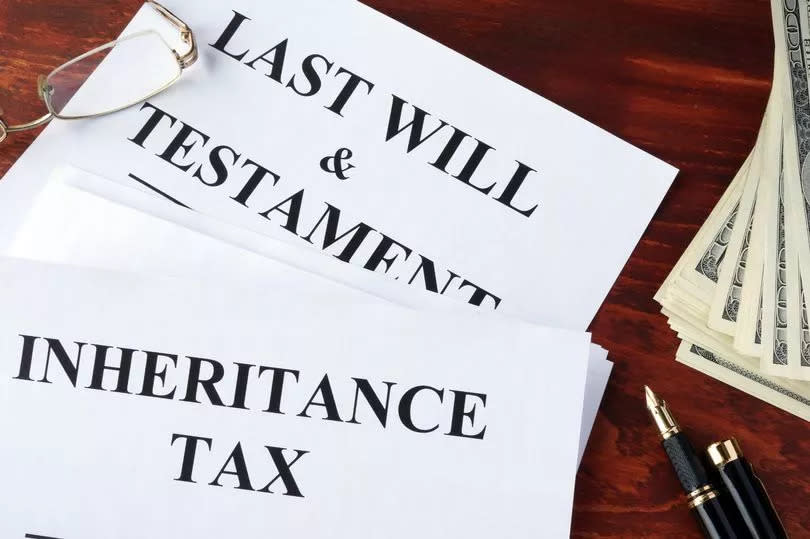Brits 'missing out on benefits' with inheritance tax mistakes

A tax expert says Brits are missing out on potentially huge benefits because of mistakes they are making when it comes to inheritance tax. Andy Wood, from Crypto Tax Degens, has spoken about the common mistakes Brits are making with inheritance tax, which he said meant they were losing out on £7.5billion in collective benefits.
Andy said: “The record £7.5 billion in inheritance tax receipts points to a key trend in the taxation landscape, showing the increasing number of families affected by inheritance tax. This growth is largely fueled by several factors, especially the ongoing rise in property prices coupled with fixed tax thresholds.
“As more estates surpass the tax-free allowances, this leads to a marked increase in tax revenues. People need to recognise and adapt to these evolving dynamics in estate planning to manage the inheritance tax situation effectively."
Common inheritance tax mistakes
Not writing life insurance into trust
Andy said: "Forgetting or not knowing to place life insurance policies into a trust may inadvertently increase the value of an estate, raising potential inheritance tax liabilities. By setting up trusts for life insurance, you can protect your assets and ensure your beneficiaries receive the full benefits of the policy payouts without inheritance tax deductions."
Thinking trusts are free from inheritance tax
Andy said: "While trusts provide significant benefits for estate planning, it is a common mistake to think assets in trusts are completely free from inheritance tax. Grasping the details of trust taxation, including the lifetime rate and potential inheritance tax impacts, is crucial to utilise trust-based estate planning strategies fully."
Gifting your house but remaining in residence
Andy said: "Gifting property to heirs to reduce inheritance tax liabilities must be carefully considered, especially in terms of residency and benefits. Staying in the gifted property or not setting proper rental agreements can lead to inheritance tax issues, diminishing the effectiveness of the gifting strategy and possibly leading to unexpected tax charges for heirs."
Selling your home to your heirs for less than market value
Andy said: "Trying to avoid inheritance tax by selling property at below-market prices introduces significant tax risks and complications. The difference between the market value and sale price can be considered a gift for inheritance tax purposes, potentially exposing the transaction to tax implications and undermining the intended tax-saving benefits. Make sure you seek professional advice and explore alternative estate planning methods to avoid these potential issues."
Not having an updated will
Andy said: "Keeping an up-to-date will is crucial in estate planning, ensuring your assets are allocated according to your wishes and helping to minimise potential inheritance tax liabilities. Without a will, the intestacy rules apply, possibly leading to unintended outcomes and increased tax charges by overlooking this key element of estate planning."
Limiting gifts to £3,000 per year
Andy said: "Many people only consider the £3,000 annual gift allowance, missing out on the full range of gift exemptions available. Fully utilising potentially exempt transfers, wedding gifts, gifts for living costs, and charitable contributions can substantially lower inheritance tax liabilities, enhancing the flexibility and efficiency of estate planning."

 Yahoo News
Yahoo News 
